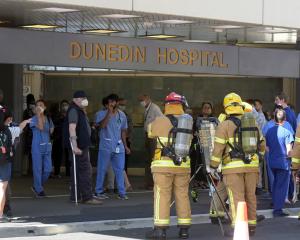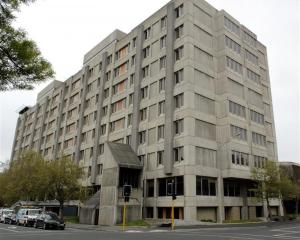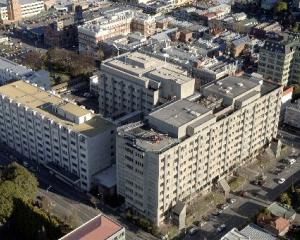The idea was floated by Ngai Tahu Property chief executive Tony Sewell as he and other tribal representatives visited Dunedin to discuss their investment plans yesterday.
Mr Sewell said the tribe's property investment arm was looking for long-term intergenerational investments, and hospitals were among the opportunities being considered.
''We would like to own a hospital - not to own and operate - to own as a commercial property investment and let someone else operate it, like the Government.
''We'd like to be in a position if they did decide to rebuild Dunedin Hospital, or upgrade it, there would be an opportunity for some private sector investment.''
The idea of Ngai Tahu investing in health and education facilities was also raised during a meeting last night with some of the city's largest organisations, including the Southern District Health Board, Dunedin City Council, University of Otago, Port Otago and Otago Chamber of Commerce.
SDHB chairman Joe Butterfield, who was not at the meeting, said when contacted last night the hospital faced ''significant'' capital expenditure to rebuild or refurbish it over the next 10 to 15 years. The ''ball park'' estimated cost, at this stage, was likely to be ''some hundreds of millions of dollars''.
How that would be financed was yet to be considered, and would ultimately be a decision for the Government, but ''all options will need to be considered''.
''Whether Ngai Tahu, in offering a deal, would be as cheap as government, as good as government, or what-have-you, is something that's still got to be explored.
''We haven't had any discussions with Ngai Tahu about this. Obviously, when the time comes to develop it, all options will be considered,'' he said.
Health Minister Tony Ryall said when contacted the only public-private partnership on the horizon was the Buller integrated family health centre, and the Government ''has no plans to sell any of its hospitals''.
Despite that, Mr Sewell said the idea of investing in Dunedin Hospital remained ''really interesting'', although more work was needed before a firm proposal was on the table.
''We need to go and have some discussions with them about some options that we might have.
''When they're looking at their whole mix of what they may or may not do, we wouldn't mind being in the discussion.''
He also wanted to discuss other opportunities in the city, including the potential to invest in the University of Otago, the city's schools or with the Dunedin City Council.
The reception from those at last night's meeting was ''gracious'', he said.
''They're interested. They're interested in having a discussion, and that's what I really like. Nobody has said `Oh no, we'd never do that'.''
The talk would continue when the company held its board meeting at Otakou marae in Dunedin today, including discussion of the long-term strategy for the ''$500 million'' property investment and farming business, he said.
The iwi already has a 6% stake in Ryman Healthcare, which runs 25 retirement complexes in New Zealand, including the Yvette Williams and Frances Hodgkins villages in Dunedin.
It also owned and leased the Dunedin Police Station, and earlier this year confirmed plans to invest in a new $20 million student hostel at Otago Polytechnic.
In Central Otago, the iwi owned 32,000ha of high country sheep, beef and deer farm and several investment properties in Queenstown, including the police station and courthouse.
However, Mr Sewell said the business was seeking to ''grow'' its property investments, ''particularly those related to leases with the Crown'' and other parts of the health sector besides hospitals.
He would not put a figure on how much the iwi would invest in Otago.
''We'll just invest as we find the deals that we think suit us - we don't have a regional budget, as it were. If the deals are good enough, we will follow them.''
Property was a significant part of the iwi's financial success. Financial gains had included adding value to the ''fairly astute'' farm development projects and property investments, he said.
''They have increased in value and returned good cash.''
The iwi had ''phenomenal'' sales of the 2500 residential sections it had available to sell in Christchurch over a 10-year period.
''Last year, we sold 400 [sections]; this year we sold 500 or more.''
Board chairman Barry Bragg said the Dunedin visit was an opportunity to engage with local politicians and business people.
Ngai Tahu would make potential stakeholders aware of what Ngai Tahu had to offer and build long-term relationships so when the market presented investment opportunities, the iwi was in a position to take advantage of them, Mr Bragg said.








